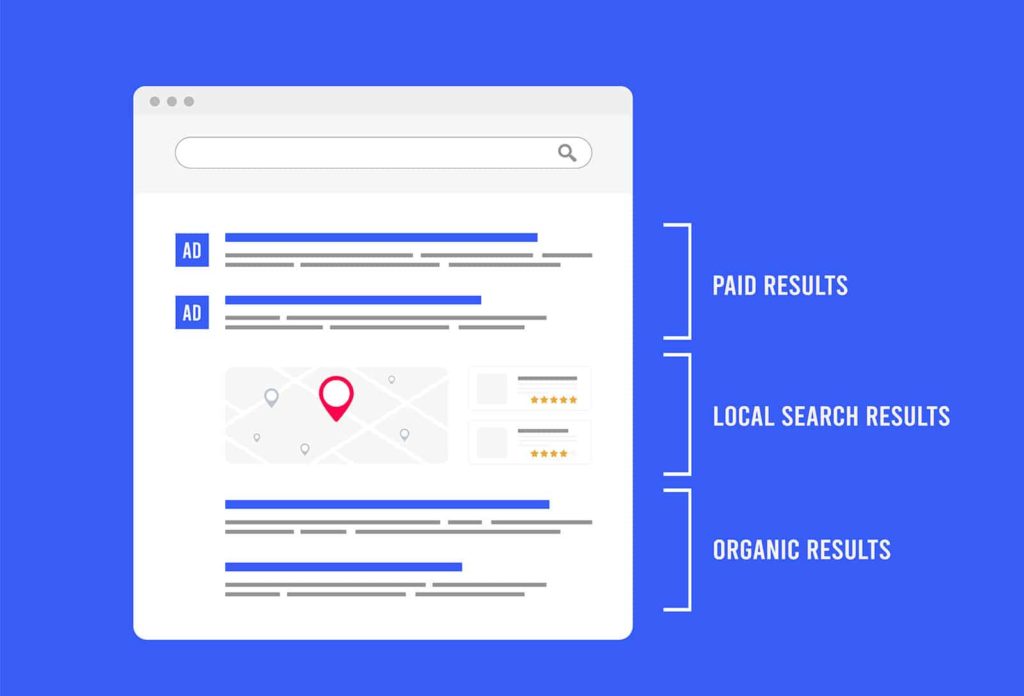The Secret Sauce Behind Google’s Search Results
For many years now, much has been made of the way Google generates search engine results pages (SERPs). At all times, Google is taking stock of new content and indexing it — while also consistently reassessing content that already exists on the web. Google’s search results are constantly changing, as Google’s algorithm updates in real-time to provide the most relevant and accurate results to users. These processes are meant to be as organic as possible, and the schedule for updates in search can differ greatly depending on a wide variety of factors. The search algorithms may take some or all of the following into consideration:
- The quality of the content provided
- The extent to which the site has authority in the subject matter
- Any technical tweaks that have taken place
TL;DR – Google’s indexing process can take anywhere from a few days to several weeks to reflect changes made to a website’s SEO.
Table of Contents
- Understanding Google’s Crawling and Google Indexing Process
- Crawling
- Indexing
- Ranking
- What to Know When You’ve Updated But Nothing Seems to Be Happening
- Average Timelines for Google Updates
- How Can I Speed Up This Process?
- Can I Monitor Changes and Updates Made by Google?
- Rome Wasn’t Built in a Day, and Neither Was Your Website
- Make the Algorithms Your Friend, and You Will Be Rewarded
- FAQ
- Resources to Peruse
Understanding Google’s Crawling and Google Indexing Process

Google makes use of bots to “crawl” the internet like spiders. From seed URLs and the internal links on their pages, the bots fan out and explore the web. The bots will also go back to pages that they’ve already visited, checking for changes with XML sitemaps to help them. Crawl rates and index times vary from site to site.
Crawling
Through the process of crawling, the Googlebot creates its own kind of chart of the internet. Pages are spotted by the spiders and then identified for further investigation. Keep in mind that Google crawls your site when something changes.
Once crawled, Google can index your site faster so that your new page or post will appear in Google searches.
Indexing
Once the pages have been discovered, they need to be stored and appropriately cataloged; this is where indexing comes in.
Google’s indexing system considers a website’s overall popularity within its niche or industry. This includes social media shares and likes, backlink quality from other websites in the same niche, and overall engagement.
Ranking
After indexing, the pages need to be ranked. Google carefully analyzes keywords used on the website — as well as their relevance — and also factors in the quality of content provided on that page. When users engage a lot with a page, they can improve its search ranking.
What to Know When You’ve Updated But Nothing Seems to Be Happening
Website owners need to be provided a timetable for when their updates may be taken into account. However, there are known factors that influence the length of time one may wait. Again, a website’s authoritativeness really factors in; when a popular page is crawled frequently due to its authority on a specific topic, updates are more likely to register quickly. New websites typically get crawled less frequently than older, established sites.
These days, Google also puts a huge emphasis on the quality of content provided. Anyone who wants to attract a substantial audience will need to pay attention to their quality on a consistent basis. Back in the early days of search engine optimization, opportunists did everything they could to make their pages stand out, often adding certain keywords and content that did not make sense — all in a quest to capture high-ranking spots. Obviously, this led to a poor user experience and Google then pledged to prioritize pages that produce high-quality content. In this same vein, sitemaps and the structure of a page also matter. Google prefers websites that are well-organized and primed for readability. The frequency of Google’s updates is subjective; it depends on your website’s analytical performance, page authority, domain authority, backlinks, mobile-friendliness, page speed, and other factors.
Of course, you can have all of the right ingredients in place, but the internet may be having a bad day. Some servers are down or the crawlers are glitching; these are technical issues occurring due to no fault of your own, but it still may impact how long it takes for an update to register.
Average Timelines for Google Updates
Although any of the aforementioned factors may affect how quickly an update is registered, most pages will be updated by Google within a matter of a few days or a couple of weeks. Again, the better the website’s content is, the more likely the update is to register quickly. For news articles, however, Google works in real-time so that users can monitor breaking news situations. Within mere minutes, news stories from trustworthy sources will be published. Google determines the crawl rate on a site-by-site basis.

How Can I Speed Up This Process?
When time is of the essence, you will want to submit your URLs directly to Google Search Console (formerly webmaster tools) by “request indexing” feature via the URL inspection tool. This allows you to effectively proceed to the head of the line, putting Google on alert that your updates should be crawled and indexed. Next, take a look at the speed of your website, how many backlinks a page has, average click-through-rate (CTR), where your website ranks, how much organic traffic your website receives for similar content, and how user-friendly it is — or isn’t. Is it easy to interact with your web pages on a mobile device? These are all aspects that come into play when Google is assessing your work. Again paying mind to SEO best practices is in your best interest.
Can I Monitor Changes and Updates Made by Google?
Tools such as Google Search Console and Google Analytics make it easier than ever to track any changes that have taken place. Familiarize yourself with both of these resources so that monitoring changes becomes a streamlined process for you.
Rome Wasn’t Built in a Day, and Neither Was Your Website
When it comes to search result updates on Google, it is important to manage your expectations. Of course, everyone wants their page alterations to take root immediately, but Google works methodically — and somewhat slowly — on purpose in order to eliminate bad actors or spammy manipulation tactics. Remember that the algorithms have been trained to flag any funny business — and you will be penalized if you attempt to trick the system. For the best results, exercise patience and adhere to best practices. First Googlebot must recrawl that page and reindex its content.
Make the Algorithms Your Friend, and You Will Be Rewarded
By churning out excellent content on a consistent basis, you position your page for success. Using Google’s resources to jumpstart the process is a good idea, and continually monitoring your website for user experience is key. That being said, do you have any special strategies or tactics that you can recommend for others who want to improve their results? Let us know in the comments!
FAQ
How long does it take for Google Search Console to update?
Resources to Peruse
https://analytics.google.com/analytics/academy/
https://search.google.com/search-console/about
